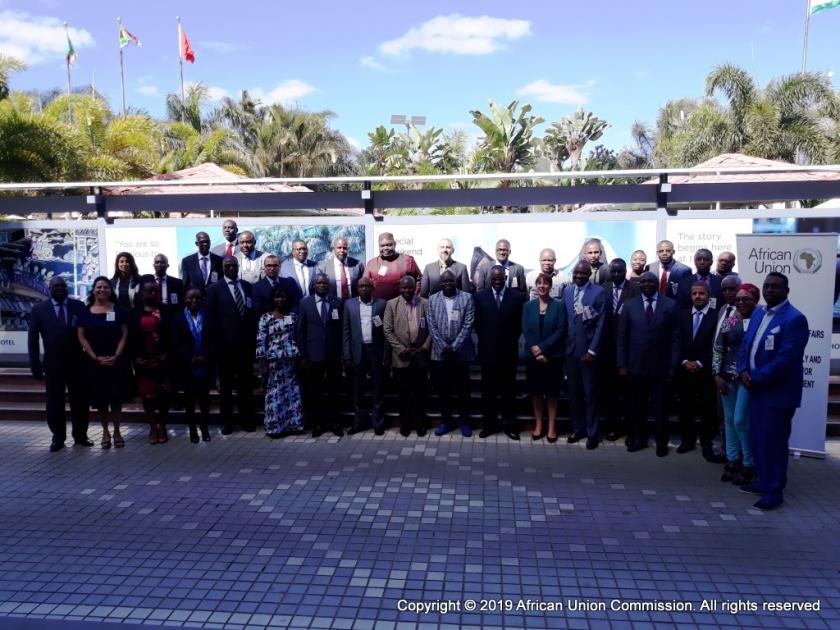Department Resources
Outbreak Update: As of 3 May 2023, a total of 765,222,932 COVID-19 cases and 6,921,614 deaths (case fatality ratio [CFR]: 1%) have been reported globally by 232 countries and territories to the World Health Organization (WHO).
Outbreak Update: As of 3 May 2023, a total of 765,222,932 COVID-19 cases and 6,921,614 deaths (case fatality ratio [CFR]: 1%) have been reported globally by 232 countries and territories to the World Health Organization (WHO).
Outbreak Update: As of 1 April 2023, a total of 761,402,282 COVID-19 cases and 6,887,000 deaths (case fatality ratio [CFR]: 1%) have been reported globally by 232 countries and territories to the World Health Organization (WHO).
Outbreak Update: As of 21 March 2023, a total of 760,360,956 COVID-19 cases and 6,873,477 deaths (case fatality ratio [CFR]: 1%) have been reported globally by 232 countries and territories to the World Health Organization (WHO).
The African Union Commission (AUC) envisions “an integrated continent that is politically united based on the ideals of Pan Africanism an
Highlights of the cooperation with the GIZ-project “Support to the African Union on Migration and Displacement”
Violent extremism is a global issue.
Agenda 2063 is Africa’s development blueprint to achieve inclusive and sustainable socio-economic development over a 50-year period.




